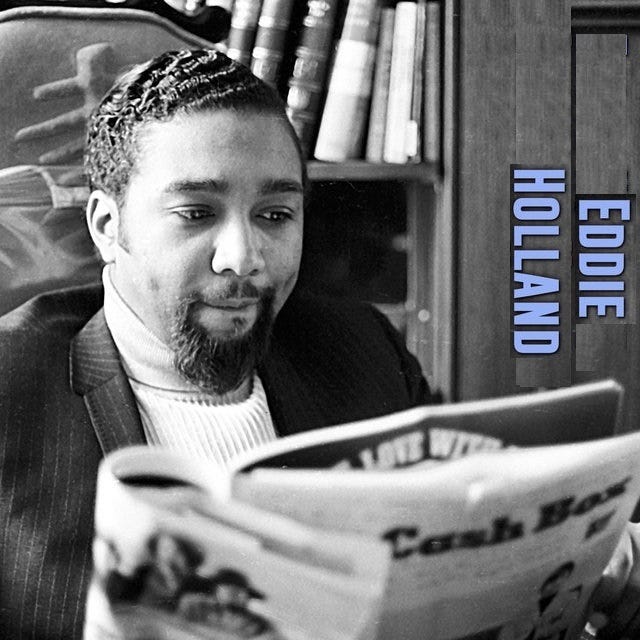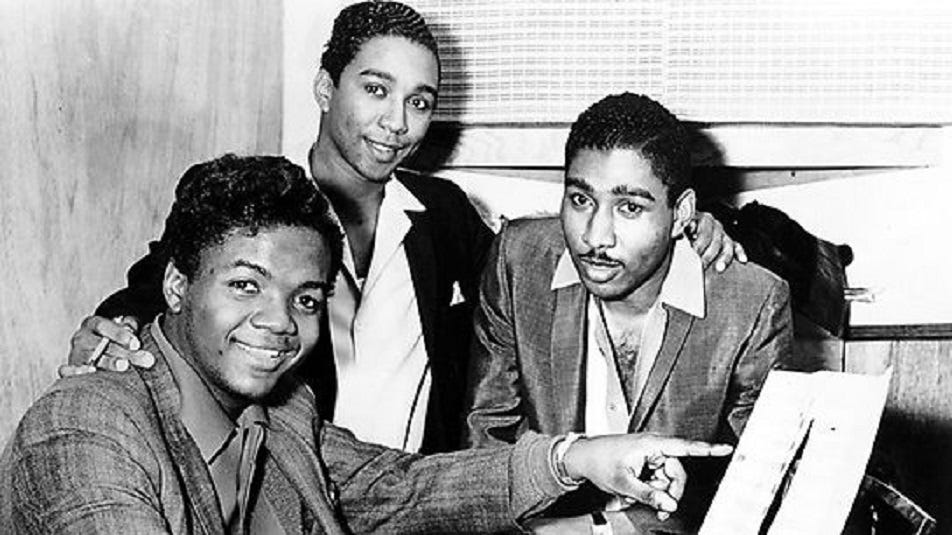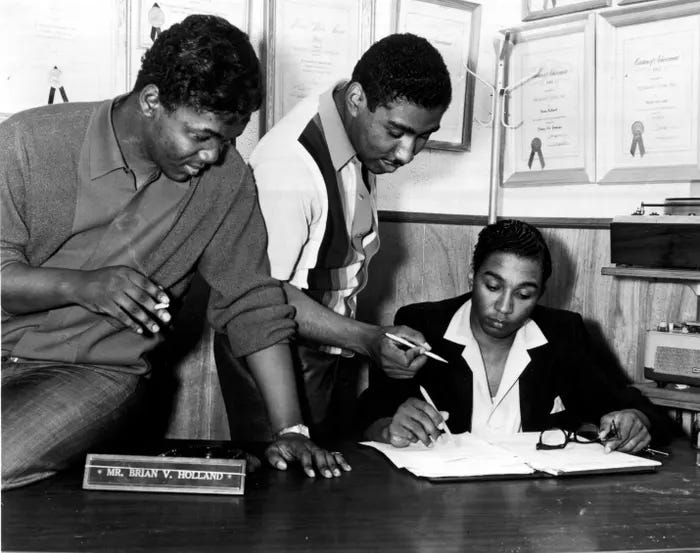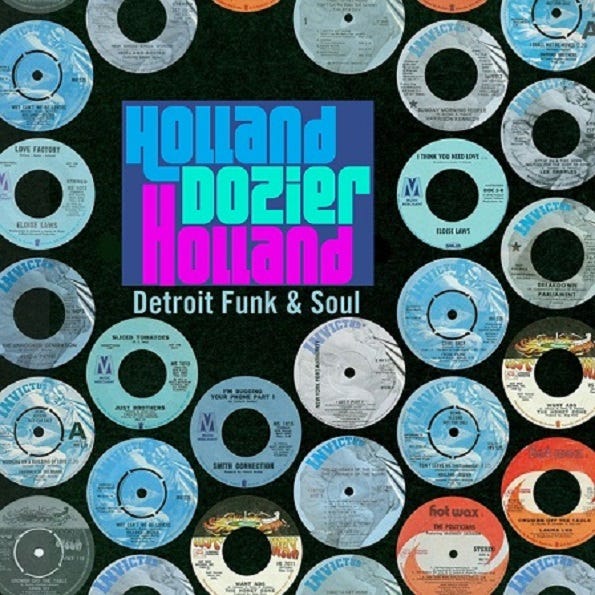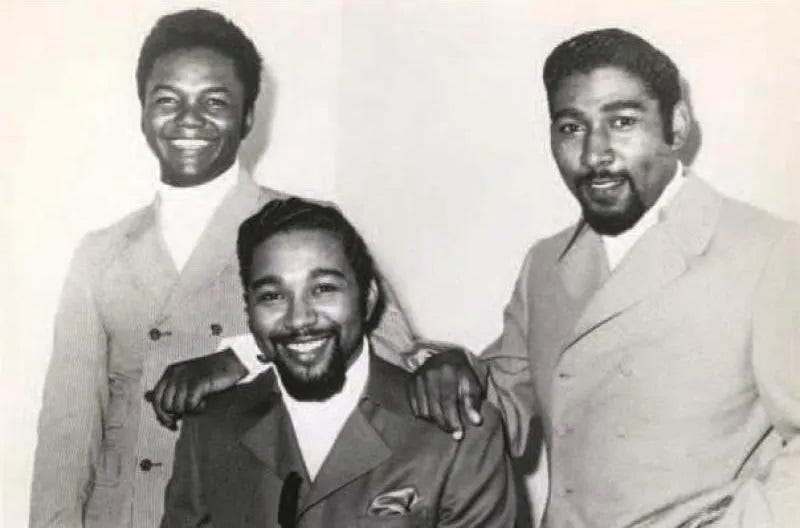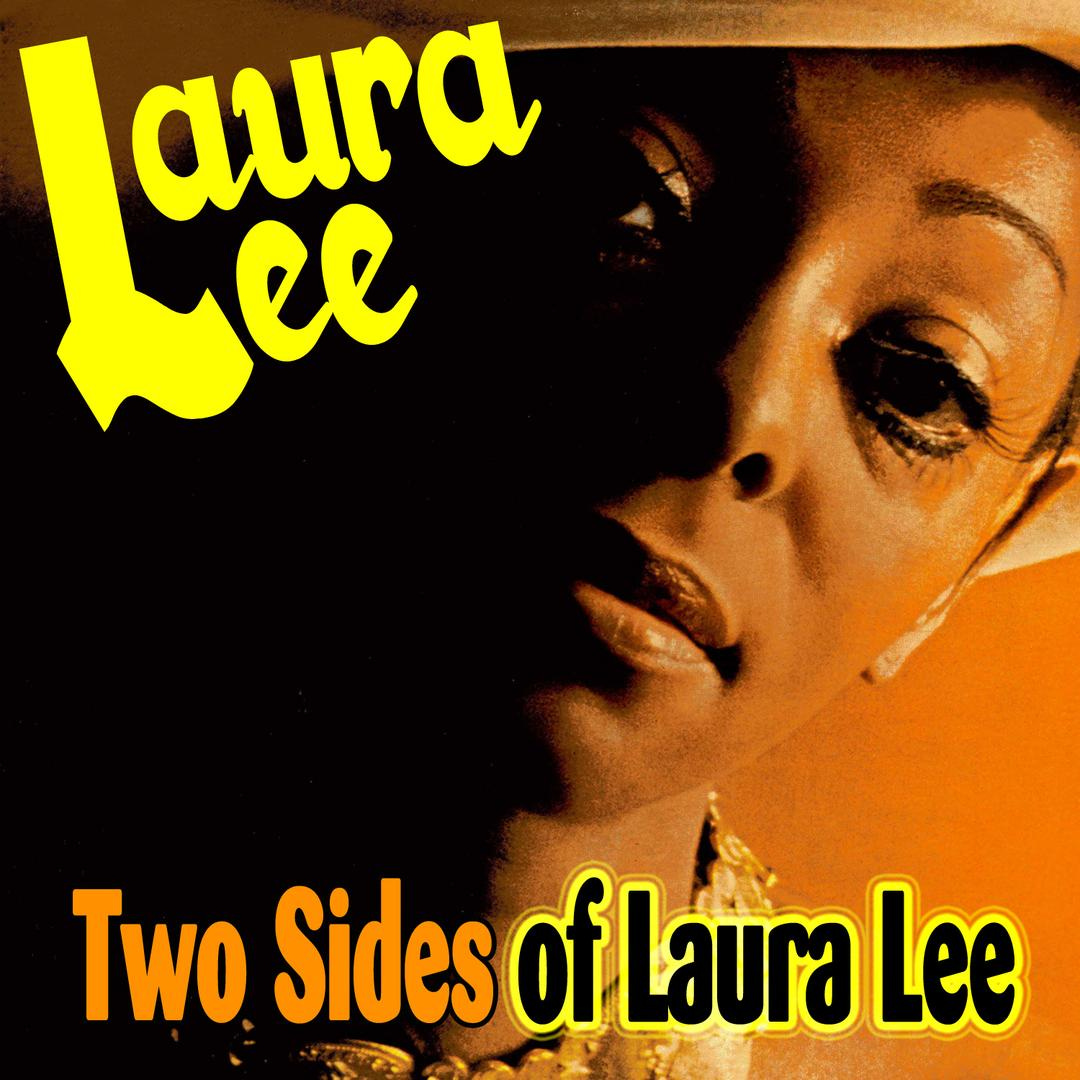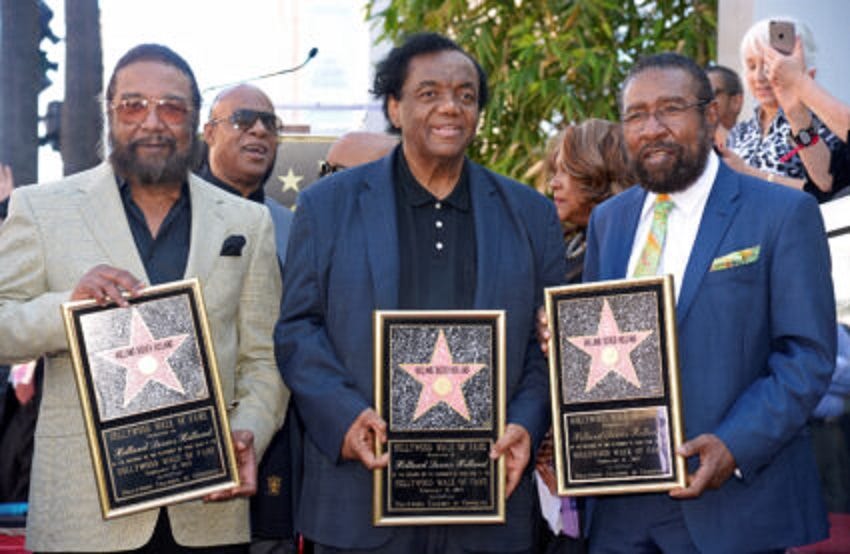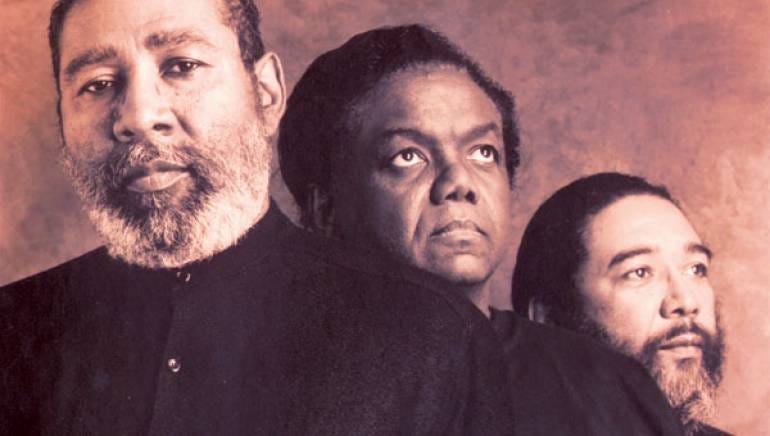Eddie Holland (born October 30, 1939) – Crumbs Off The Table (1972)
The legendary Holland-Dozier-Holland songwriter penned lyrics for countless classics at Motown and beyond, like this funky empowerment anthem by Laura Lee.
View most updated version of this post on Substack.
Eddie Holland was part of the Holland-Dozier-Holland songwriting and production team that helped define the Motown sound in the 1960s, along with his brother Brian and Lamont Dozier. The trio eventually left Motown in the late 60s and founded their own Detroit-based labels including Invictus and Hot Wax.
Edward James Holland Jr. was born and raised in Detroit. He started out as a singer and began collaborating with Berry Gordy Jr. in 1958 when Gordy co-wrote and produced his doo-wop track “You (You You You You)” for Mercury Records. After Gordy founded Tamla Records in 1959 (re-named Motown the following year), Eddie’s brother Brian was hired as a staff songwriter for the label. In 1961, Brian co-wrote his first mega-hit song, “Please Mr. Postman” by the Marvelettes. It topped both the R&B charts and Billboard Hot 100 and became Motown’s first #1 pop record.
The brothers teamed up with Lamont Dozier, who had been a recording artist for other Detroit labels, and formed a songwriting and production partnership in 1962. At first it was to create material for themselves as well as others. But as the hits started to flow they decided to focus on songs for other artists. Brian Holland and Dozier wrote and produced the music, while Eddie was the trio’s lyricist and vocal arranger.
Eddie suffered from stage fright, and quit performing altogether in 1964. That same year, one of the last songs he recorded with his own vocals was the demo version of “Take Me In Your Arms (Rock Me a Little While).” It was later a #4 R&B hit for Kim Weston in 1965 and went to #11 on the Hot 100 when the Doobie Brothers covered it in 1975.
While at Motown from 1962-67, the trio wrote, arranged, and produced dozens of songs, including an astounding twenty-five #1 hit records. They gave us classics like “Heat Wave” (1963) by Martha and the Vandellas, “I Can't Help Myself (Sugar Pie, Honey Bunch)” (1965) and “Reach Out I’ll Be There” (1966) by the Four Tops, plus ten of the Supremes’ #1 hits including “Stop! In the Name of Love” (1965) and “You Keep Me Hangin' On” (1966). Eddie also co-wrote several songs for the Temptations with Norman Whitfield, including their #1 R&B hit “Ain’t Too Proud To Beg” (1966), the success of which resulted in Whitfield replacing Smokey Robinson as the Tempts’ main producer.
A couple of their lesser-known but excellent Motown productions were “(I’m A) Road Runner” (1966) by Junior Walker & the All Stars (#4 R&B), and “7 Rooms of Gloom” (1967) by the Four Tops (#10 R&B).
One of the last songs they wrote and produced at Motown was by the Canadian singer/songwriter R. Dean Taylor. “There’s A Ghost In My House” was originally released in 1966 but did not initially chart. After it became an anthem on the UK’s Northern Soul scene in the early 70s, it was re-issued in 1974 and went to #3 on the British singles charts.
In 1967, the trio became embroiled in a dispute with Gordy over royalties and profit-sharing from their many hit records. Eddie convinced the others to stage a work slowdown, and they officially left Motown in early 1968. They set up their own labels Invictus and Hot Wax Records, and Motown sued for breach of contract. They countersued, and the dueling lawsuits lasted until 1977.
See our earlier posts on Invictus artists General Johnson of Chairmen of the Board, Freda Payne, and Laura Lee for more on the Holland-Dozier-Holland partnership.
The trio co-wrote and produced the epic gospel-soul jam “Where There Is Faith, There Is Hope” for Chairmen of the Board circa 1970-71, intended for Invictus Records. It remained sadly unreleased until nearly five decades later in 2014.
Another Invictus/Hot Wax artist was the great Laura Lee. While in a relationship with Al Green in 1972, she recorded the album Two Sides Of Laura Lee, which was released on Hot Wax.
Eddie’s powerful lyrics on countless Holland-Dozier-Holland classics helped make them so memorable, like Lee’s funky soul anthem “Crumbs Off The Table,” which H-D-H had originally written for their first Invictus house band The Glass House in 1969. Like many of Lee’s songs, it preached women's empowerment and let the two-timing men of the world know that mere crumbs of love were not going to cut it any longer. The track was included on Two Sides Of Laura Lee, and released as a single it reached #40 R&B.
Although written by Holland-Dozier-Holland, the song was credited to Invictus staffer Ron Dunbar, friend of the family Edith Wayne, and Scherrie Payne, the younger sister of Invictus artist Freda Payne who herself later joined the Supremes. In 1972 the trio were still under contract to Motown’s publishing arm Jobete and legally prevented from using their names on the songs they wrote.
Scherrie Payne was one of the lead singers of The Glass House and had sung the track’s original version three years earlier, which went to #7 R&B. The group followed it up with another Holland-Dozier-Holland production, the stellar socially conscious song “I Can’t Be You (You Can't Be Me)” (1970). Co-written by General Johnson and Greg Perry as well as H-D-H (although credited to Ron Dunbar), it only made it to #33 R&B. The Glass House later lip-synched to the song on a local Detroit music show, one of the group’s few taped live appearances.
In 1973, Scherrie Payne joined the Supremes, replacing Jean Terrell. The first album she sang on was their self-titled 1975 LP, which reunited them with the Holland bothers, who were among the LP’s numerous songwriters and producers. They co-wrote and produced the disco hit “Early Morning Love” (which was only released as a single in the UK) and the fantastic “I Can Never Recover,” which Motown foolishly left off the album and remained unreleased until 2011.
Even though their litigation with Motown was still ongoing, the brothers were given complete production control of the Supremes’ next album High Energy, released on April 1, 1976. It was the group’s highest-charting LP in years. The phenomenal title track was a #9 dancefloor hit, with newest member Susaye Greene on lead vocals. It proved that if Diana Ross could be a disco diva in ‘76 with “Love Hangover,” so could the rest of the Supremes. They performed it live at the Montreux Jazz Festival later that year.
The Hollands also co-wrote and produced the great message song “There's Room At The Top” during the High Energy sessions, but Eddie felt it didn't fit with the rest of the album. It was finally released in 2002 on the Supremes compilation The '70s Anthology.
Happy 84th Birthday to the living legend Eddie Holland.
Further info:
“Holland-Dozier-Holland (and other early Motown songwriters) - Money (That's What I Want),” Motown 25: Yesterday, Today, Forever TV Special, March 25, 1983.
“Holland-Dozier-Holland: For the first time in four decades, the platinum production team H-D-H gathers in a studio to revisit their raw Motown tracks,” Detroit Free Press, August 13, 2009.
“Eddie and Brian Holland on their greatest songs: 'Motown feels like it was a miracle',” The Guardian, October 17, 2019.
Love Factory: The History of Holland Dozier Holland, by Howard Priestley, New Haven Publishing, 2022.
#soul #funk #Motown #Invictus #HollandDozierHolland #HDH #EddieHolland




